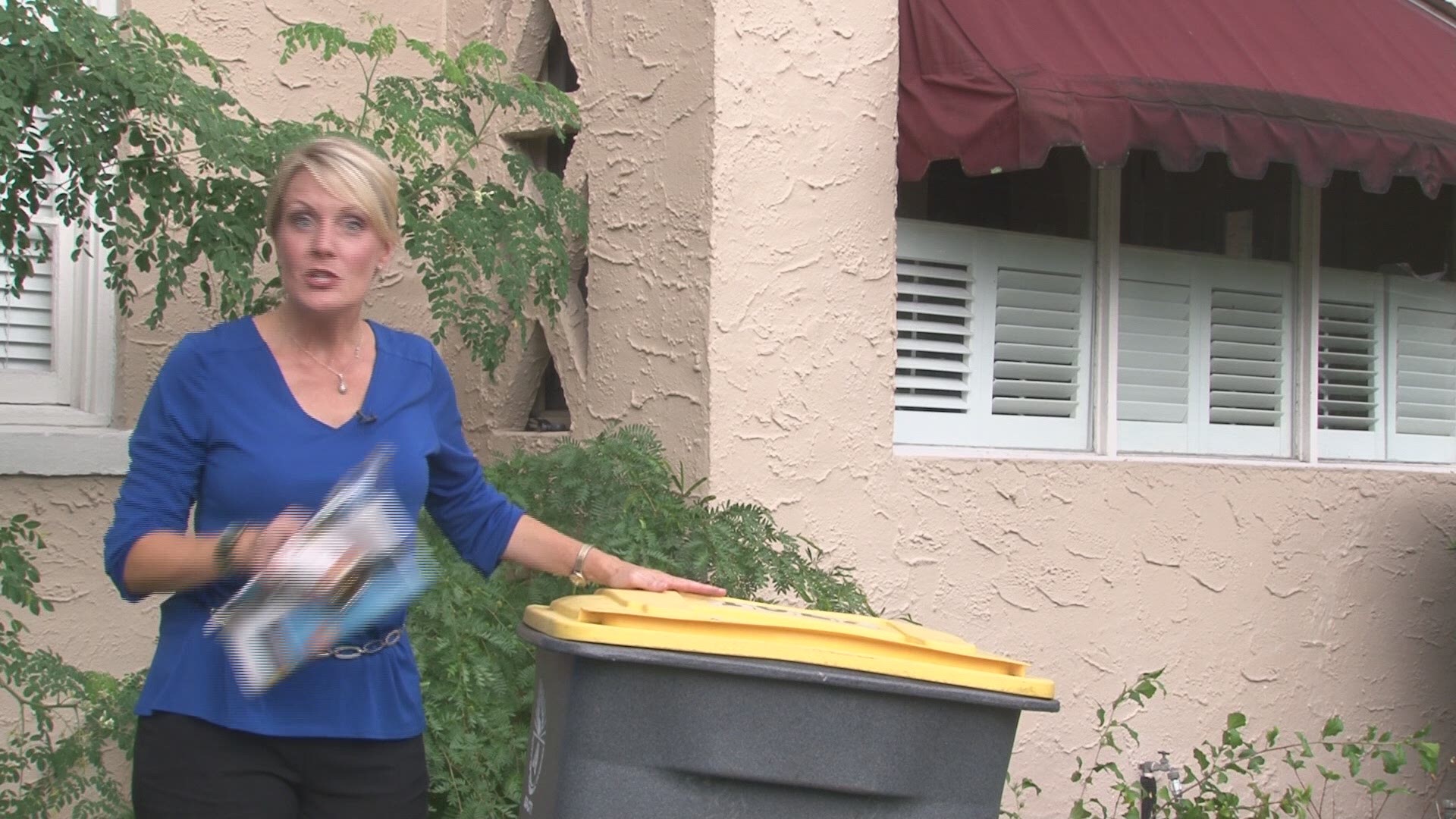Verify: Is your recycling actually going to the landfill?
When you throw items in the recycle bin, do you ever stop to wonder what happens to them after?
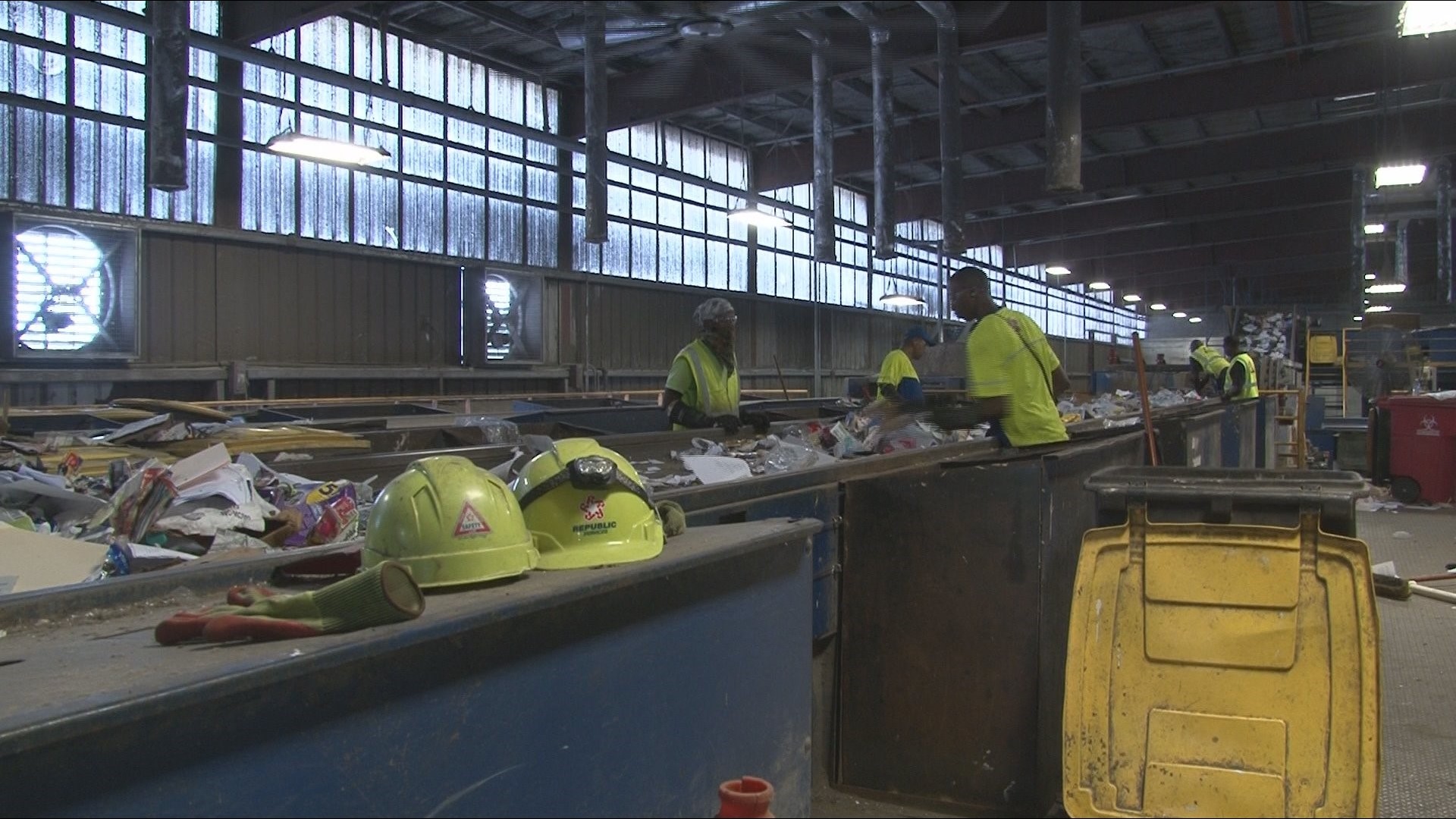
When you throw items in the recycle bin, do you ever stop to wonder what happens to them after?
In July, we aired a series of pieces focusing on plastics and how the trash has been ending up in the ocean. Viewer Faith Kane saw our series and it got her thinking, “Saw your piece about plastics and recycling. I read an article a couple of days ago that said because China no longer purchases our recycled products, it is being put into landfills along with the rest of the trash.”

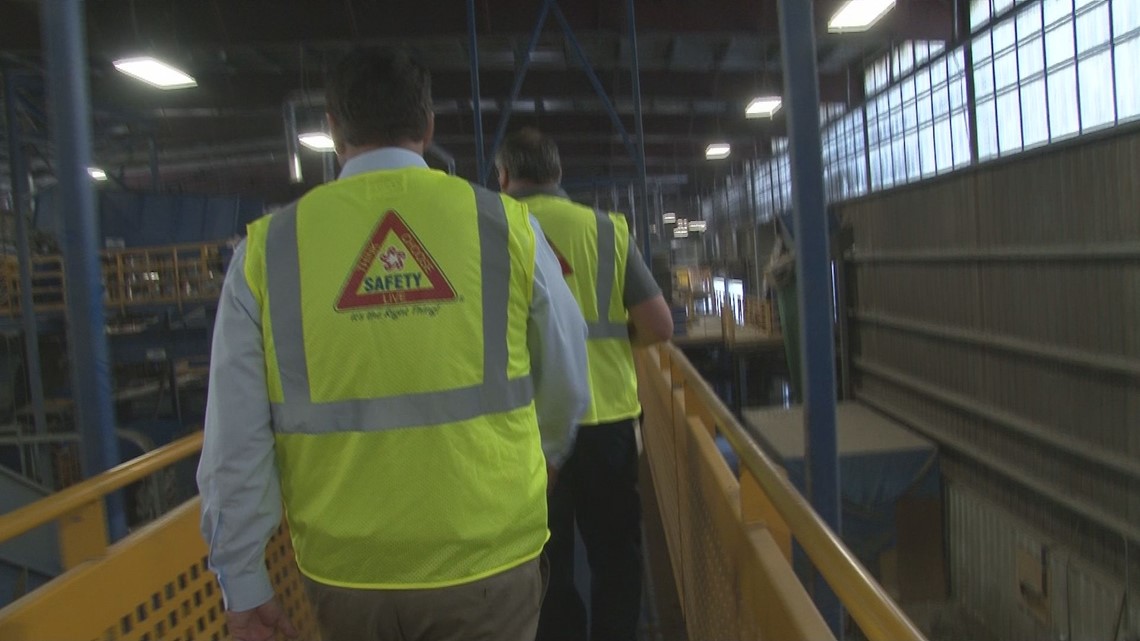
I don’t know about you, but I have one of those big bins for recycling. You don’t have to sort, you can just dump anything recyclable into it and go on your merry way. But are those materials that I’m saving from the trash bag really being recycled? We went to a local facility to see the process with our own eyes.
To learn more about the whole process, Bill Brinkley showed us around. He’s the General Manager of Republic Services here in Jacksonville. It’s one of the companies which picks up your paper and plastics.
“We bring in about 350 tons a day of recycling,” says Brinkley. That is for Duval, St. Johns and Clay Counties. The material is weighed and sorted. Employees pluck out any trash. One of the most interesting processes is how they sort aluminum. The company has a magnet at the end of a conveyor belt that pulls the cans away from the other items and throws them into a separate bin. The recycling materials are then made into big bails that are ready to be sold and shipped.

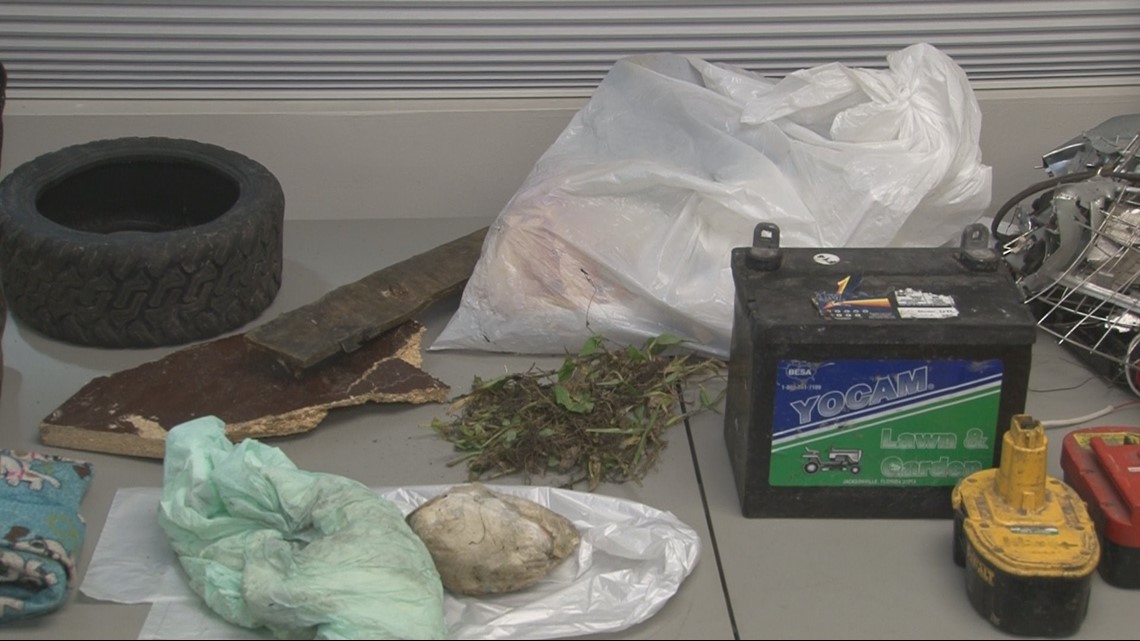
The biggest problem that Brinkley says they run into is contamination. “We have seen diapers, the grocery bags, batteries, propane tanks. Folks have the tendency to think if it’s a plastic toy you can just throw it in the recycle bin. No, it’s got to be empty, clean, and dry. So, if it’s a bottle of water it’s got to be empty, clean, and dry, put it in the bin.”

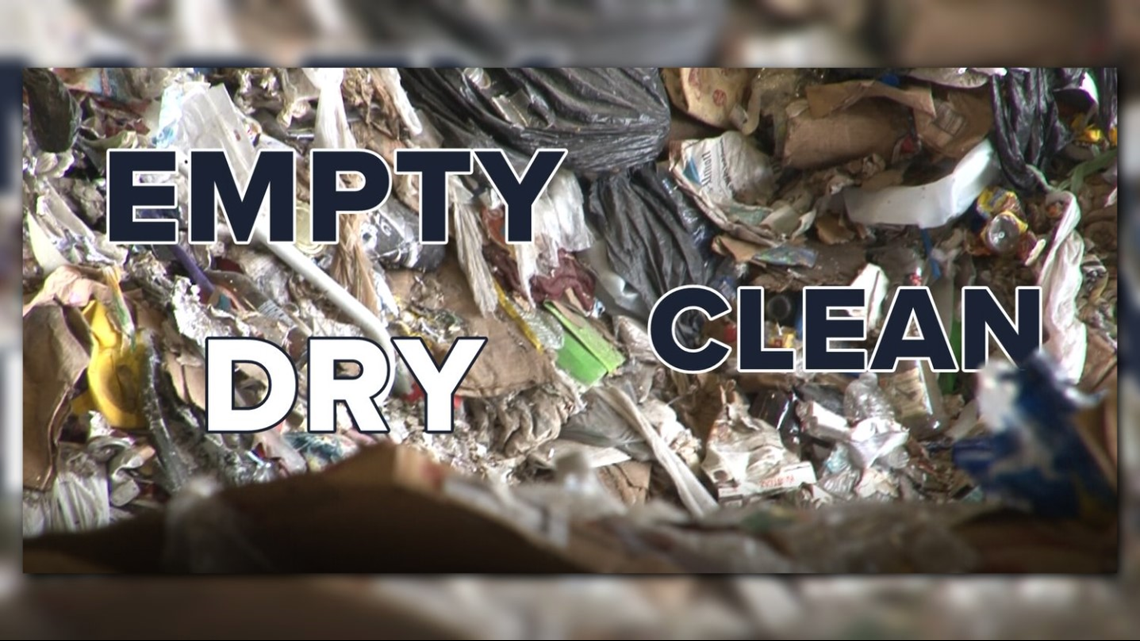
Part of the problem recycling companies run into is user error. For example, when you throw the whole pizza box in the recycling bin, “if you put a pizza box in the recycle bin, tear the half off that didn’t touch the pizza and that can go in the recycle bin. The other half that had pizza stains on it, that should go in the trash.”
Now to the second part we are verifying. Did China’s decision to stop taking our solid waste affect the recycling industry here at home? Brinkley explained to us their process, “we were export here, and we built everything up and we sent it to China and China paid for the commodity. They were less stringent on contamination, effective January 1 this year they accepted no more material.”
Some backstory here, China began importing solid waste as a source of raw materials in the 1980s. For years the country has been the world's largest importer of recyclable materials. Last year China announced it no longer wanted to be the “world’s garbage dump.”
And China just announced in April that it is putting more materials on the banned list. That goes into effect at the end of this year and there are more bans in 2019.
According to Brinkley, China used to allow a 5 percent contamination rate in their bails of recyclables. Domestic partners only allow less than 3 percent. So more of the items you put in the bin do end up in the landfill.
That’s because if the items you’re putting in the recycle bin are dirty or wet, they could contaminate other items that could be recycled like magazines or paper. Brinkley says the big challenge for recycling companies is to process material from the current 26.3 percent contamination rate to less than 3 percent, which the domestic recycling partners will take. “We need to go back to basics on recycling because we really do have to clean it up.”

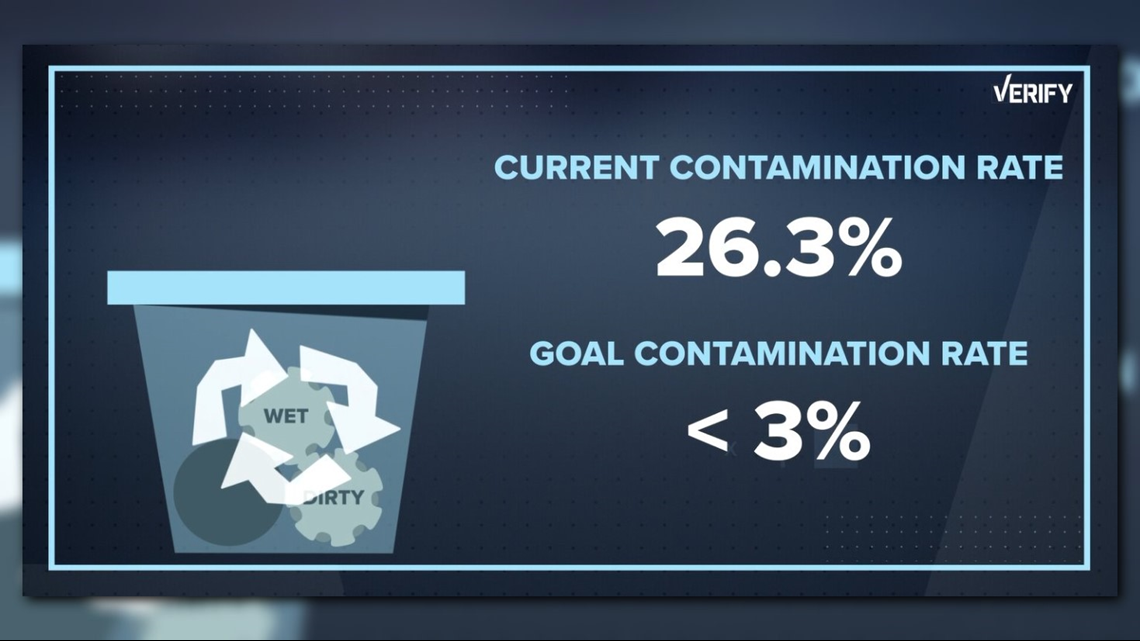
Let’s recap. The statement that recycling is ending up in landfills is false. You’re recycling is not going straight to landfills. But if the items are contaminated, the recycling company has no other choice but to trash the contaminated stuff.

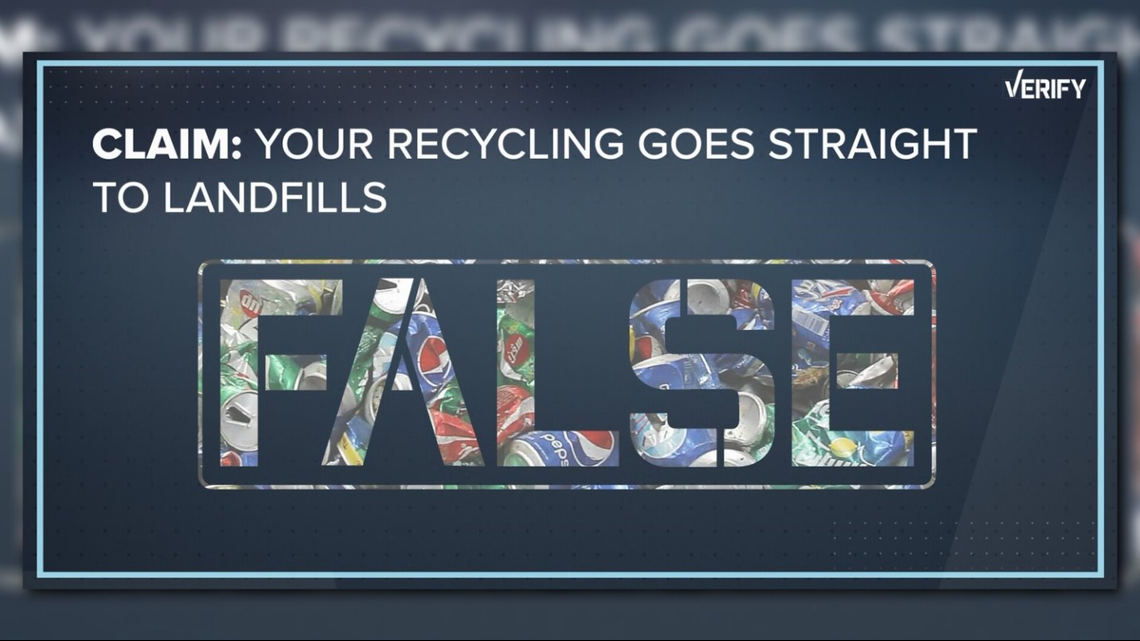
Also, China’s ban on solid waste has affected recycling here on the first coast. That’s true. The contamination levels that are accepted now are lower, forcing recycling companies here to throw out more than they used to. But, the recycling companies are recycling within the U.S. with domestic partners instead of having to ship overseas.

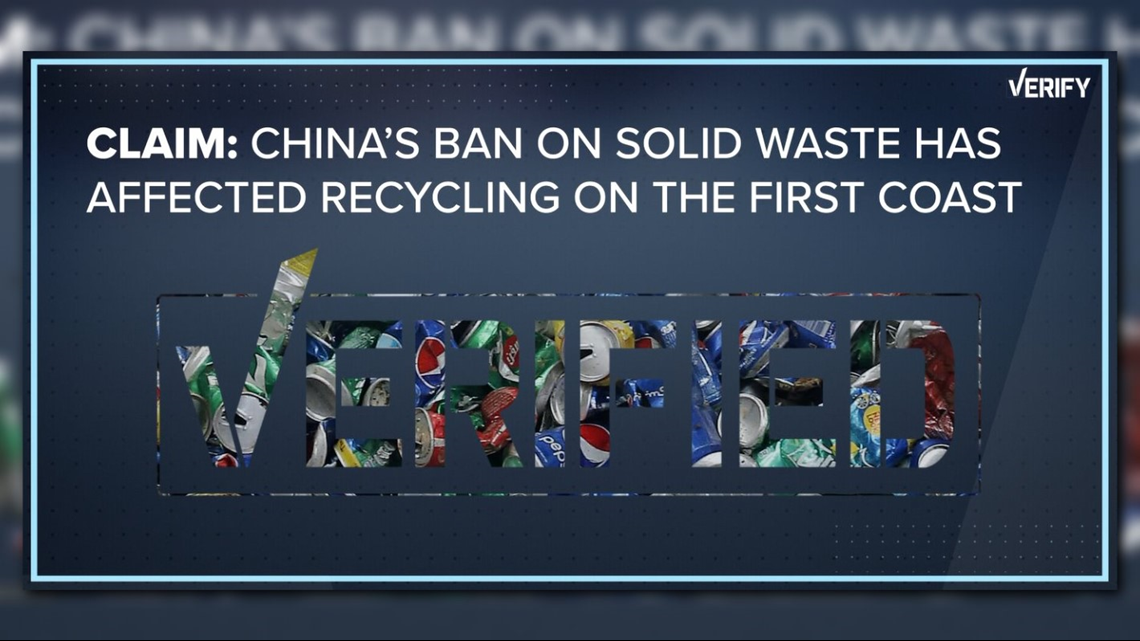
Do you know the ins and outs of recycling? We were surprised too. There is a lot of information about what belongs in the recycle bin at recyclingsimplified.com. You can also find out more on the City of Jacksonville's website.
And as the general manager of the local recycling company says, when it comes to recycling, “When in doubt, throw it out.”
If there’s something you would like us to verify, send us an email to verify@firstcoastnews.com.


